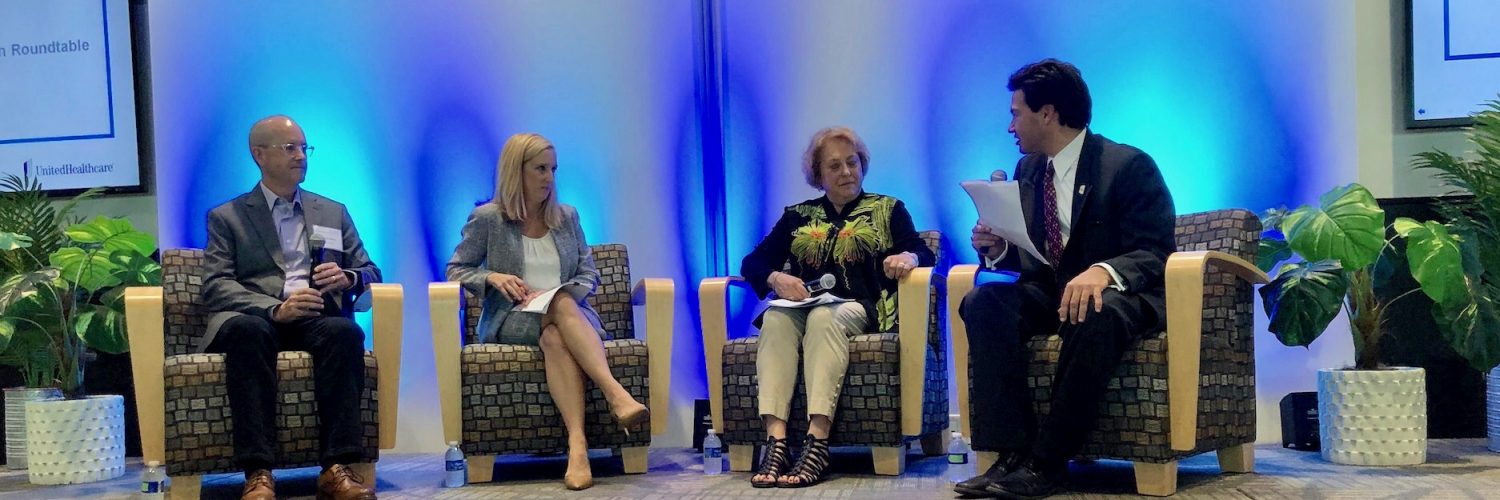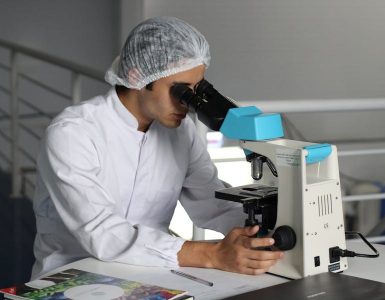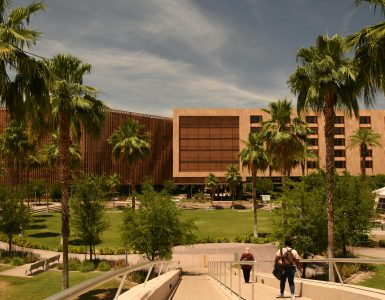Despite leading the way in health care innovation, Arizona ranks 30th in the United States for overall health, according to United Health Foundation.
“Arizona’s 30th in health rankings, but there’s a lot of opportunity for improvement in Arizona,” Jeff Brenner, MD, senior vice president of Clinical Redesign at UnitedHealthcare Community & State, said. “We’ve invested about $6.4 million in grants to nonprofits from 2016 to 2018 and $21 million in affordable housing… [And] since 2018 $2.6 million in a variety of investments in Arizona.”
To discuss the growing issues in the state’s health care system, UnitedHealthcare hosted the Empowering Health in Arizona roundtable on Sept. 12.
According to the health care company, it is working on addressing challenges faced in the U.S. by expanding access to care and addressing social determinants of health.
Addressing social determinants of health
Where a person lives, learns, works and plays can affect a wide variety of their health outcomes and these living conditions are known as social determinants of health (SDOH).
Individuals who grew up in low-income families have less access to healthy foods, safe neighborhoods and quality education and have poor SDOH.
There are striking health differences between communities with poor SDOH and quality SDOH, according to the Center for Disease Control and Prevention (CDC).
UnitedHealthcare is addressing social determinants by helping improve an individual’s access to food, housing and transportation.
The Arizona Health Care Cost Containment System (AHCCCS) is also starting to address SDOHs.
“The next phase of our conversation around whole person health which really takes us into a discussion around social determinants of health,” Jami Snyder, director of AHCCCS, said. “We’ve been very fortunate in Arizona to have some state-level resources to support work in the SDOH space. So going forward, our commitment as a Medicaid agency is really looking at… how we can leverage federal funding as well to support that work around social determinants of health.”
According to UnitedHealthcare, 80 percent of a person’s health is influenced by what happens outside of a clinical setting.
Housing:
One social determinant that affects an individual’s health is their housing situation.
18.2 million households lack access to stable housing, so through UnitedHealthcare’s “housing-first” model, the company has invested more than $400 million to build 80 affordable housing communities in the U.S. since 2011.
“I do think the one that is so clear is housing and health care,” Suzanne Pfister, president and CEO of Vitalyst Health Foundation, said during UnitedHealthcare’s roundtable. “The Maricopa County Jails…asked people when they came into their jail system as part of the intake, ‘did you have problems, do you have problems with housing?’… 59 people said yes to that. They were responsible for a thousand crimes and in some cases, the booking costs were up to $30,000. So the insanity of that is, think what kind of rent $30,000 would do instead of a jail booking fee.”
In Arizona, UnitedHealth Group has provided $21 million in affordable housing investments and supports 498 homes for individuals and families through partnerships with organizations like Chicanos Por La Causa.
Transportation:
According to UnitedHealthcare, 3.6 million people in the U.S. struggle with obtaining medical care because of transportation issues creating another SDOH.
Health companies have been working to fix this issue in Arizona for a while.
Earlier this year AHCCCS worked with Lyft on a policy that allows ridesharing companies to register as non-emergency medical transportation (NEMT) providers. Lyft is also working with Access2Care to provide NEMT services, which can be used by UnitedHealthcare members.
“We’ve understood for a long time that there’s opportunity to build capacity around NEMT in our system,” Snyder said. “[With rideshare] we anticipate improved health outcomes, certainly improved member experience of care, which are real markers of success in the Medicaid program and that’s the kind of initiative that really gets at those two objectives.”
Other transportation initiatives are being used around Arizona.
Bisbee has started partnering high schoolers with seniors so that teenagers wanting to drive can help elders get to grocery stores, medical appointments and more said Pfister, and according to Snyder, AHCCCS worked to offer reimbursement for donkey and horse transportation out of the Grand Canyon for members of the Havasupai Tribe.
“There are some phenomenal transportation programs. We have pockets of innovation bubbling all over the state,” Pfister said.
According to UnitedHealthcare, addressing the barrier will enable better preventative medicine, earlier identification of disease and fewer missed appointments, so the organization has provided nearly 7 million rides across 15 states in 2018.
Food insecurity:
According to UnitedHealthcare, 40 million people in the U.S. live in a food-insecure household and according to the Arizona Department of Economic Security, in Arizona, more than 700,000 people reside in a food desert.
Not having access to quality food can result in a decline in someone’s health, but it can also create a food insecurity and chronic disease cycle.
“The cycle of food insecurity and chronic disease begins when an individual or family cannot afford enough nutritious food,” Hunger + Health, a partner of Feeding America, reports. “The combination of stress and poor nutrition can make disease management even more challenging. Further, the time and money needed to respond to these worsening health crises drains the household budget, leaving little money for essential nutrition and medical care.”
In Phoenix, multiple organizations are working to address food insecurity in the Valley.
Valley of the Sun United Way and Bashas’ Family of Stores partnered with Lyft in May to expand the rideshare company’s Grocery Access Program and provide “deeply-discounted” Lyft rides to and from Food City locations.
In April, AT&T kicked off its Believe Phoenix initiative to address food insecurity and hunger in the Greater Phoenix area.
UnitedHealthcare has worked to address the issue by funding refrigerated fresh food in Arizona and distributing more than 9.4 million meals.
“We think about food as medicine, so we are enabling food banks to provide more healthy, fresh food by investing in refrigeration, training, mobile food pantries and meal delivery programs,” UnitedHealthcare wrote.
In Arizona, UnitedHealthcare has provided meals for 350,000 people through the refrigerated trucks as well as other refrigeration in food pantries throughout the state.
Expanding access to care
90 million Americans live in medically underserved communities, or geographic areas and populations without proper access to primary care services, according to UnitedHealthcare.
UnitedHealthcare has invested $5 million in the community health worker programs with local Federally Qualified Health Centers (FQHC) over the last two years.
According to the organization, community health workers (CHWs) are at the front line of delivering care to the most vulnerable communities and 83 percent of community health center patients are uninsured or publicly insured.
“We employ thousands of CHWs to make in-person visits to our members’ homes,” UnitedHealthcare wrote. “We also provide funding to local [FQHCs] to help hire and train CHWs who can better connect those they serve to the social services that meet their needs.”
Mobile health clinics are another way that providers can expand access to care. University of Arizona’s school of public health and department of family and community medicine have both created mobile clinics to go into the community and provide people with the care they need.
UnitedHealthcare has funded two mobile dental clinics with safety-net dental providers.
While Arizona has innovative solutions to solving problems, there is still room to improve.
“Health is much bigger than the pill you take, it’s much bigger than a CAT scan, it’s much bigger than a hospital bed, it’s much bigger than anything a physician, nurse can do in a clinical setting,” Brenner said. “Patients have profound complexity, medical, behavioral health, social, substance use complexity, age and frailty, they’ve got functional status challenges and we can’t solve that stuff from 10-15-minute visits. What we need is a new traffic lane in health care.”
One solution is cross-sector collaboration.
“A real commitment here in Arizona to ensuring we’re bringing the right partners to the table and many non-traditional partners, so it’s challenging for us but there’s a commitment that we’re reaching out in a way that we haven’t before. So I’m really encouraged,” Snyder said.
















Add comment